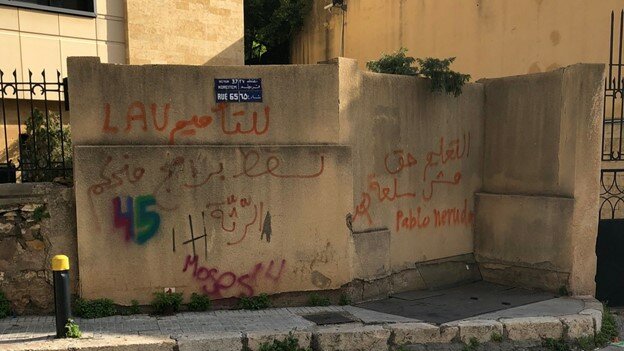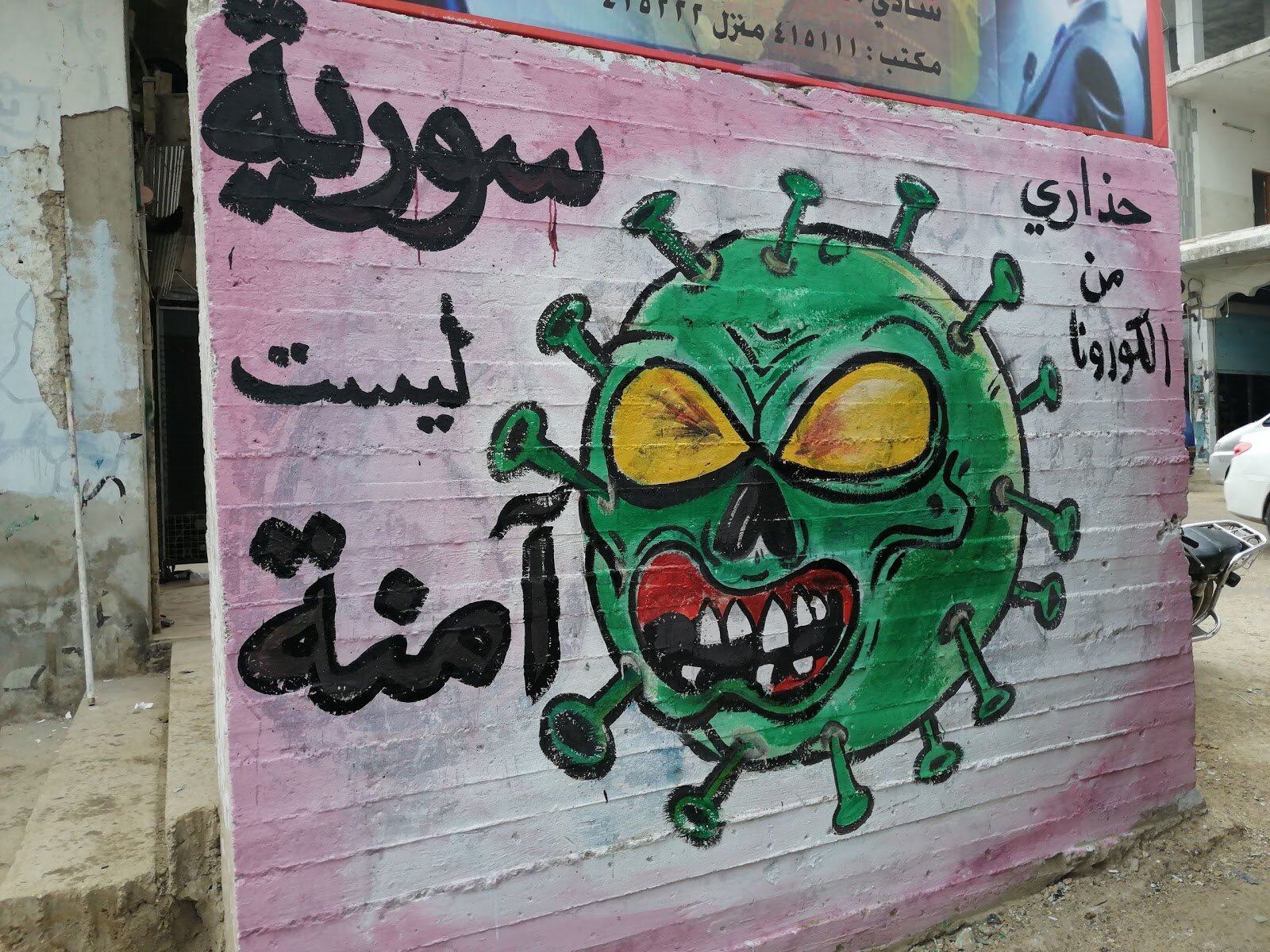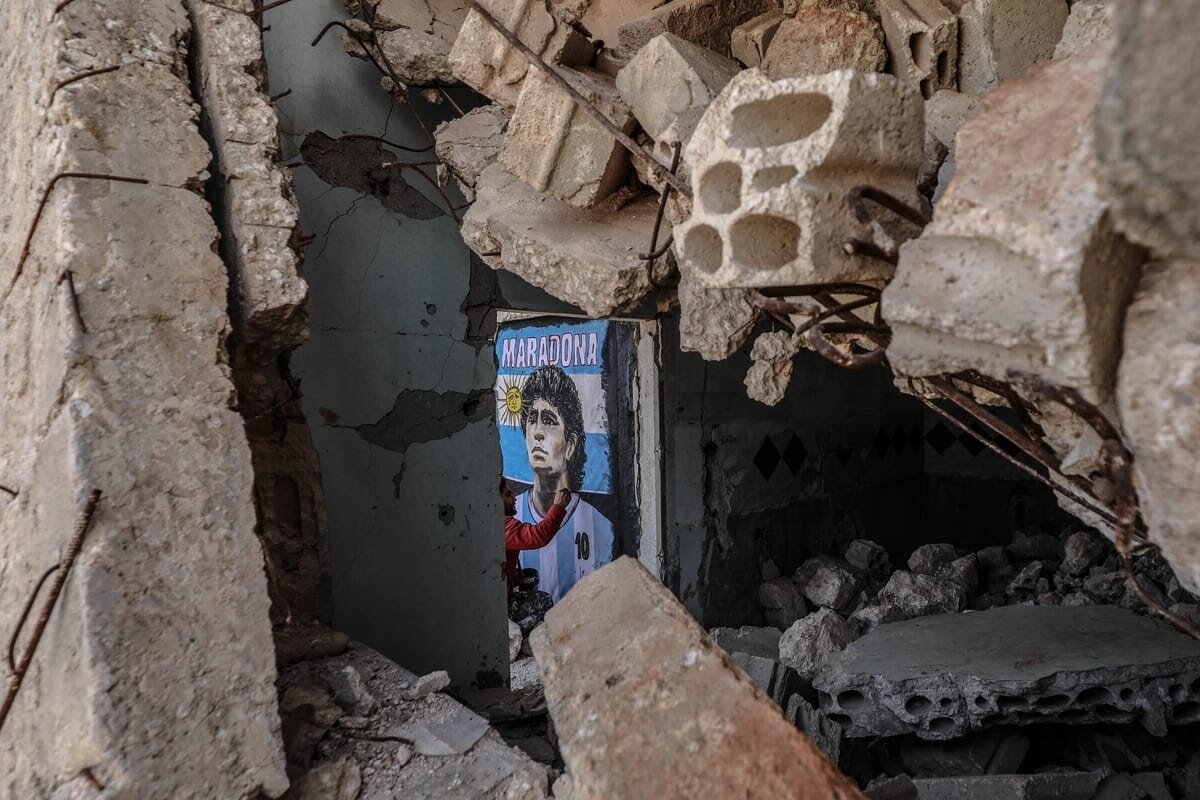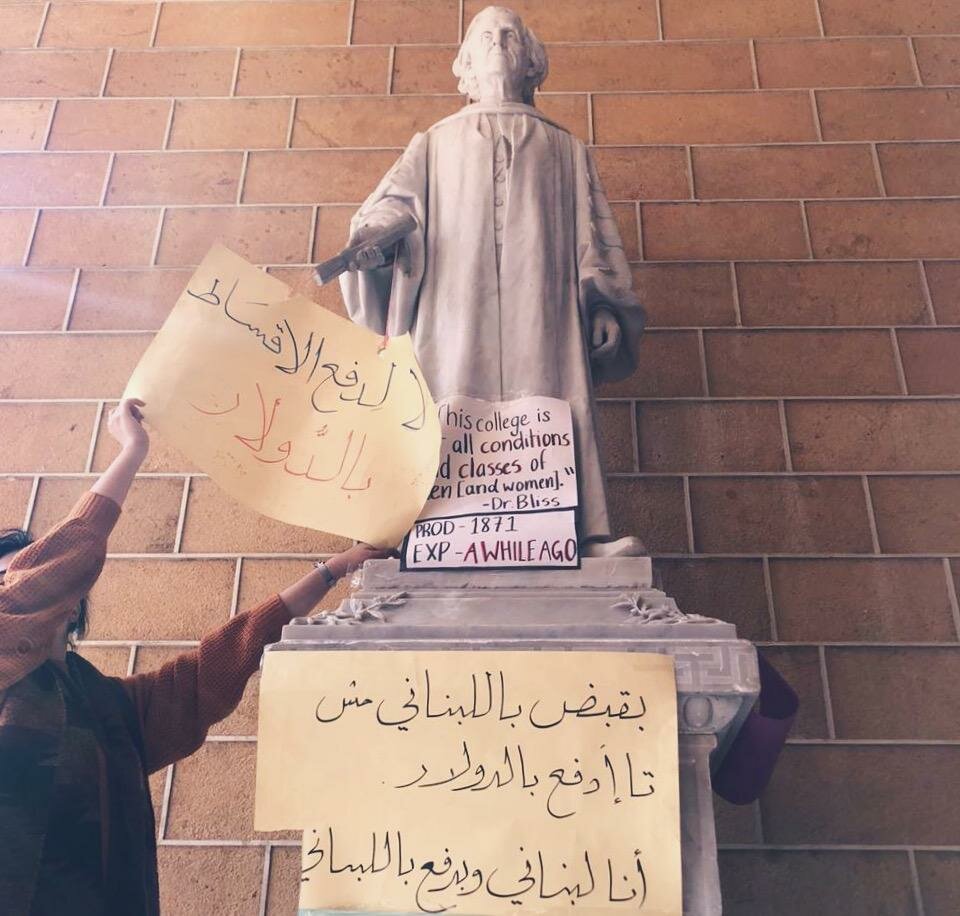Edited by Hala Al Shami
On March 30th, 2022, LAU declared that starting from Fall 2022-2023, it would fully dollarise its tuition. This decision will see a $20,000 annual tuition skyrocket from 78 million L.L. (at the 3900 rate) to 540 million L.L. (at the current 27,000 fresh dollar rate). The rest of Lebanon’s private universities have either already, or are expected to soon, follow in LAU’s footsteps. This will have disastrous consequences on an already devastated student body, which has barely survived the weight of multiple crises and a tuition increase of 160% just last year.
Student Protests
After the dollaristion announcement, a wave of discontent erupted across the LAU student body. On March 30th, the first official response came from the Beirut Student Councils. This relegated direct student action to the background in favour of defeatist collaboration with the administration, stating that “we cannot stand in revolt as this would destroy all trust we have built up to give us leeway for negotiations.” Unsatisfied with this course of action, student anger continued to rise within the university. This anger was transmitted by members of the Pablo Neruda collective on March 31st, as they took to the walls of the university to A wide-ranging coalition of students then decided to take direct action against the decision the following week, with multiple protests planned.
The first day of protest, April 4th, saw an unexpectedly large turnout. Angry students against the decision and the university administration, and especially against President Michel Mouawad. Clearly unready for this level of student action, the LAU administration was incapable of repressing the protest. Instead, heated exchanges occurred between students and officials as the protest successfully disrupted campus activity. Many students were explicitly threatened with suspension for their participation.
The second day of protest, April 6th, featured simultaneous protests across LAU’s two campuses. A sit-in on the Jbeil campus was matched with a roving march in Beirut, where students disrupted classroom activity and broke into the campus’ business and financial aid offices. Students continued to reject the administration’s decision, chanting that “they will not pay.” This time the administration was much more firm in its response, and officials preparing cases against students participating.
LAU Students Protesting with Flares on April 6th 2022, image courtesy of the LAU Pablo Neruda Collective.
In the wake of the April 6th protests, 5 students were suspended. Their suspension was announced in a mass email to the student body. This blatant intimidation technique, combined with practically non-existent media coverage and a lack of out-of-campus solidarity, led to an underwhelming final day of protest on April 8th.
At AUB, in the wake of an unannounced hike to summer semester tuition, and with speculation regarding further dollarisation potentially pending in the following fall semester, students marched through campus on April 19th and voiced their discontent at the administration’s decision.
While earlier this year, in the first of these kinds of protests, students at the Beirut Arab University had protested against the partial dollarisation they were subjected to. So far, all of these protests have not succeeded in gaining any meaningful material concessions.
Student Councils and Other Powerless Bodies
After crushing student action, LAU quickly moved to ensure a quick normalization of its tuition hike. Deliberations on the fate of the decision were restricted to the powerless Student Council, and students have been forced to submit to the claws of financial aid dependency.
The LAU Student Councils, much like their counterparts in other private universities, are nothing more than a glorified theatre. Despite prominent wins by ‘opposition’ and ‘independent’ candidates throughout the last few student elections, no meaningful material outcomes have come out of these representative bodies. In fact, more often than not, these councils have done nothing but crude apologia for their administrations.
The current events at LAU highlight the most harmful aspects of student councils’ sham democracy. Beyond being CV and accreditation laundering tools, during times of actual struggle, they also become active tools of collaborationism and cooptation. Their members peddle , which quickly sell out the student body in the name of compromise and practicality. Creating a world where student action gets suffocated in the name of ,” and a .
The entire history of these student councils has repeatedly showcased that they hold no true power or leverage. These institutions are completely subservient to, and powerless in the face of, the administrations that rule above them. This is not a result of bad politics, bad members, lack of effort, or any other electoral arguments. This is the result of a deliberate and designed systematic emptiness. Any narrative to the contrary can no longer be discounted as naive idealism but as actively harmful to student struggle.
An LAU Student Chanting Through a Megaphone on the Beirut Campus, image courtesy of the LAU Pablo Neruda Collective.
Faced with the inadequacy of student-elected bodies, some were tempted to look to the higher bodies of the state for solutions. But any rudimentary reading of the crises of the past three years clearly shows the inability of the state to offer any real assistance.
The notary public initiative launched in the wake of the repression of the December 2020 protests is a great example of this. Faced with violently stubborn university administrations, groups decided that the local court system was the best form of alternative resistance at the time. Despite the fact that it has achieved limited individual success for some students, it failed to set any binding legal precedent that could protect students against further hikes. While valuable energy was diverted away from direct action and into unnavigable legal webs at a crucial moment. It is unproductive to still expect that the local administrations’ ruthless profiteering can be defeated through legalese or appeals to higher power. Relying on these methods again for the current dollarisation struggle will lead to the same place, because much like the student councils, these bodies are materially aligned with the interests of the private universities.
The clearest example of this alignment of the state with private universities, is witnessed in the current state of the Lebanese University. Underfunded and under threat, the country’s only public university has been pushed to the brink of collapse. LU students and faculty have long protested against the university’s corrupt administration and against its continuous marginalisation. Faculty complain of overwork, deteriorating working conditions, unequal employment, and political interference in administrative affairs. While students complain of an uncaring administration, crumbling and under maintained campuses, outdated teaching methods, and intensive, and often interrupted, semesters. These effects are all the results of a deliberate push by successive Lebanese governments to prioritise private universities at the expense of the Lebanese University.
The deliberate destruction of the Lebanese University is not separate from the dollarisation of tuition in private universities. After dollarisation, a large segment of students will find that LU is once again the only viable place for their education. This incoming influx of students fleeing the tuition hikes will only further stress the university’s decaying infrastructure. And students may even find their futures once again threatened as LU comes under the state’s (IMF sponsored) ever expanding austerity and privatisation policies.
Student Struggle
Students in 2022, much like students across history, find themselves once again in struggle with the forces of the status quo. In face of the class warfare being conducted by private universities and the state, a very large proportion of current and future students will find it hard to access higher education.
The local student struggle is disjointed and disoriented. Students are fragmented and separated within their own universities, and national student solidarity has been almost completely absent during this year’s events. A remarkably bad turnaround from the response to the 3900 hike almost a year and a half ago.
Students and ISF Officers at AUB’s Main Gate During the 3900 Dollarisation Protests in 2020, https://nowlebanon.com/universities-in-recession/.
The dominance of performative politics within the student movement has caused much harm. Hanging a poster, organising a protest, chanting a slogan, writing a statement, etc. have been removed from their ideological context and made to be the sole objective of student struggle. When, in fact, these actions should all be deployed within a coherent ideological framework and toward a concrete material goal. Instead, we get protests that lead to nowhere and that speak of a “blatant disregard of students’ rights” and a sidelining of “students from the decision making process” but conclude that “there will be a USFC meeting tomorrow that will lead way to a comprehensive countering strategy.”
The accumulated political experiences of just the past few years provide blueprints for success and failure within student struggle. When ideology is replaced with pluralist pragmatism, solidarity is replaced with networking, and action is replaced with performance, we reach the current state of student political paralysis. To overcome the overwhelming forces of repression within the state and university apparatuses, there must be first an overcoming of the issues plaguing the student struggle.
Much can be learned from the struggle in the Lebanese University, and all local student struggle must return to the Lebanese University. Students and the faculty within the LU have actively resisted the decisions imposed on them, utilising a variety of collective tactics to pressure the administration. This, of course, does not always lead to complete success or harmony, but something as simple as student-faculty cooperation has been completely missing from student struggles in private universities.
Faculty will never hesitate to speak of oppression and change when it is abstract. But when it is happening in their places of employment, not one tweet, let alone statement, can be found. While student clubs and representatives will speak of ‘not paying the price’ while simultaneously justifying the ‘expenses’ that supposedly led the university to dollarisation. In their current state, these two groups cannot be productive allies to the student struggle. Daily workers, who have been precrarised and made to pay the price, should be allies. Part time faculty, the exploited backbone of many universities, should be allies.
With complete national dollarisation seeming inevitable, the student body faces a massive reckoning. The student bodies of private universities will undergo significant restructuring as what is left of working class students are pushed out in favour of the elite and dollar-carrying. The student body of the crumbling Lebanese University will rise significantly and unsustainably. While the proportion of people forgoing any further education will balloon to unprecedented heights.
An organised, unified, and active student resistance that cooperates with its allies towards an actual material goal is the only force capable of real change. Solidarity must be rebuilt and restored across the national student body. Material goals must be articulated and worked towards. There must be a move away from petty personalities only interested in making media appearances to a militant collective working for the material benefit of the entire student body.
The strategies and objectives of this struggle will come from within it. However, as private universities demonstrated when they deployed the ISF and army to hike tuition and fire employees, violent decisions often require violent actions. And, in this context, it is important to recognise that the decision to dollarise tuition is a thousand times more violent than a rock being thrown.





